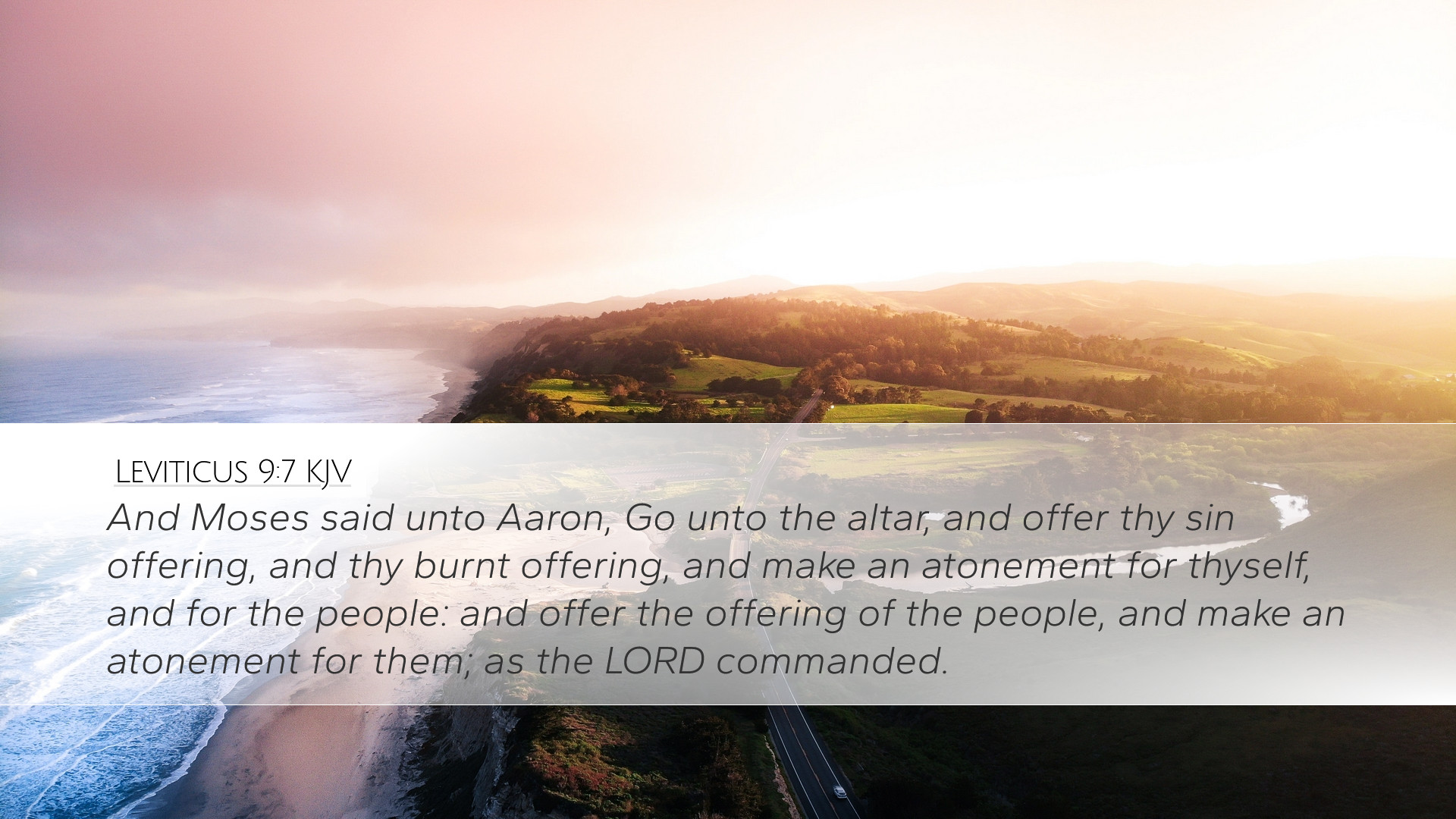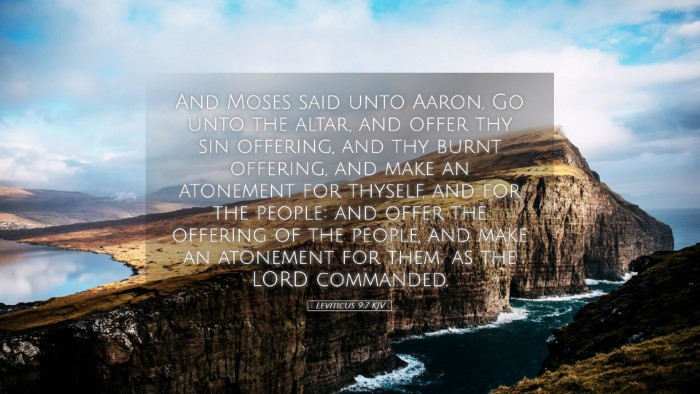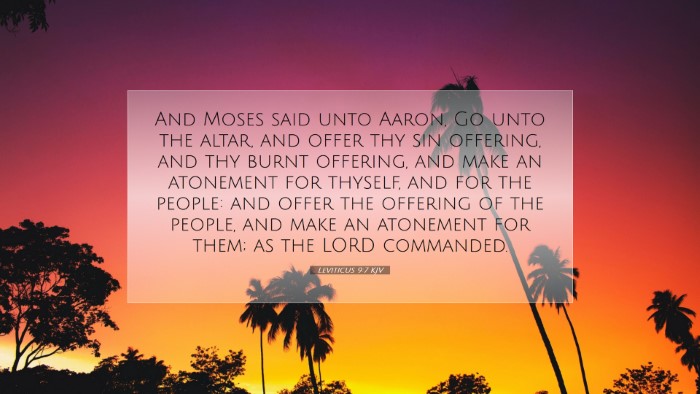Commentary on Leviticus 9:7
Leviticus 9:7 states:
"And Moses said unto Aaron, Go unto the altar, and offer thy sin offering, and thy burnt offering, and make an atonement for thyself, and for the people: and offer the offering of the people, and make an atonement for them; as the Lord commanded."
Introduction
This verse is pivotal in the priestly rituals described in the Book of Leviticus. It marks a significant moment where Aaron, the newly ordained high priest, is instructed by Moses to commence the sacrificial system intended for the atonement and worship of God by His people. The implications of this command are profound, touching on themes of atonement, intercession, and the divine order of worship.
Contextual Background
The Book of Leviticus is primarily concerned with the laws governing the worship of Yahweh and the holiness required of His people. In chapter 9, the inauguration of Aaron and his sons as priests takes place. This chapter serves as a transition from the establishment of priestly duties to the practical application of these laws within the worship setting of Israel.
Moses acts as a mediator and instructor, guiding Aaron in the process. Understanding this context is crucial for interpreting the act of sacrifice and atonement described in this verse.
Insights from Matthew Henry
Matthew Henry emphasizes the significance of the offerings made by Aaron, highlighting that the sin offering symbolizes the need for purification before approaching God. Henry points out that:
- Atonement is essential: The instruction to make atonement for oneself and the people shows the seriousness of sin and the necessity of divine forgiveness.
- Role of the priest: Aaron’s actions reflect the mediatorial role of the priest, responsible not only for his personal atonement but also for that of the community.
Henry notes that the command reflects God’s intention for His people to maintain a relationship with Him, which requires acknowledgment of sin and the necessity of sacrifice.
Insights from Albert Barnes
Albert Barnes provides a detailed explanation of each part of the verse, noting that:
- Sin offering: This offering represents the acknowledgment of sin, serving as a reminder of the need for purity before God.
- Burnt offering: The burnt offering indicates complete consecration to God, as it was entirely consumed. This reflects the total devotion and surrender expected from the worshiper.
- Community aspect: Barnes highlights the communal responsibility in worship, emphasizing that Aaron's duty to the people underscores the collective nature of sin and atonement.
Barnes poignantly connects these offerings to the ultimate sacrifice of Christ, framing Aaron’s offerings in the light of New Testament revelation and the fulfillment found in Jesus.
Insights from Adam Clarke
Adam Clarke focuses on the procedural details with an appreciation for their theological implications. He notes that:
- Obedience to divine command: Clarke stresses the importance of acting according to God's instructions, which speaks to the nature of worship—doing what is prescribed by God rather than human inclination.
- Symbolism of offerings: Each offering serves a distinct purpose and represents various aspects of the believer's relationship with God, including acknowledgment of sin, surrender, and the need for divine favor.
Clarke's commentary encourages readers to see the transformative power of these rites when conducted in obedient faith, anticipating the greater work of Christ.
Theological Reflections
The implications of Leviticus 9:7 extend beyond its historical context. It poses significant questions for theology and practice:
- Understanding Atonement: This verse echoes the core Christian doctrine of atonement, particularly how it emphasizes both individual and communal aspects of sin and redemption.
- Role of Mediation: Aaron’s position as mediator points to the biblical theme of intercessors throughout Scripture, ultimately fulfilled in Jesus Christ, our great High Priest.
- Implications for Worship: The prescribed acts of worship remind contemporary believers of the importance of approaching God with reverence and recognition of their own need for grace.
Conclusion
Leviticus 9:7 serves as a powerful reminder of the seriousness of sin, the necessity of atonement, and the correct approach to worshiping a Holy God. Through the insights of prominent commentaries, we gain a deeper understanding of the role of the priesthood, the significance of the sacrifices, and their profound implications that point towards Christ. For pastors, students, theologians, and Bible scholars, this verse is a rich resource for understanding the character of God and the nature of redemption.


